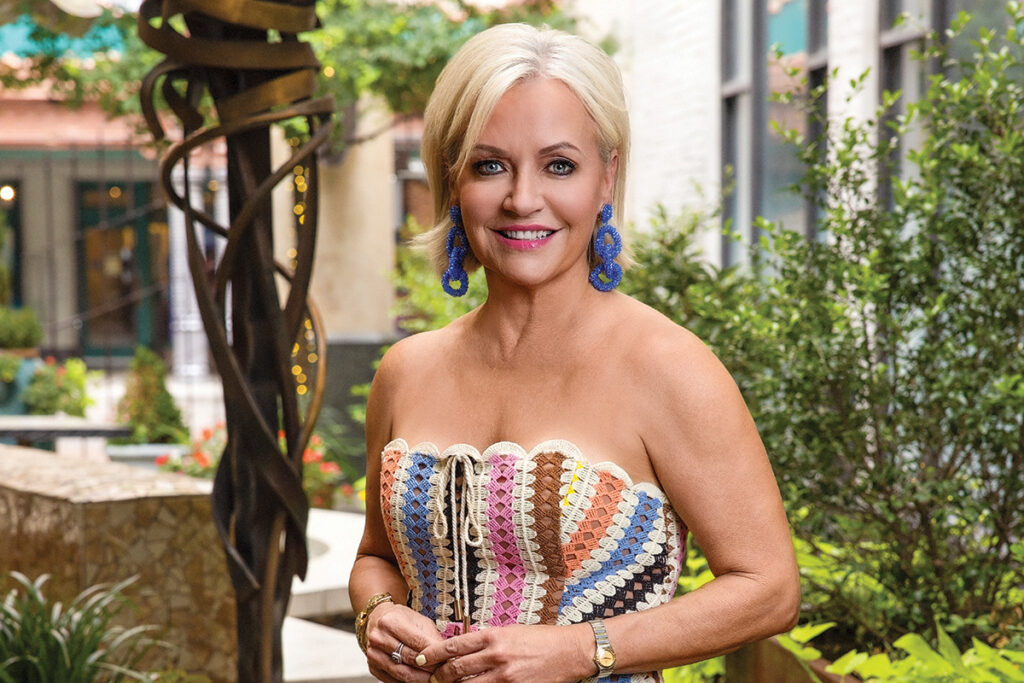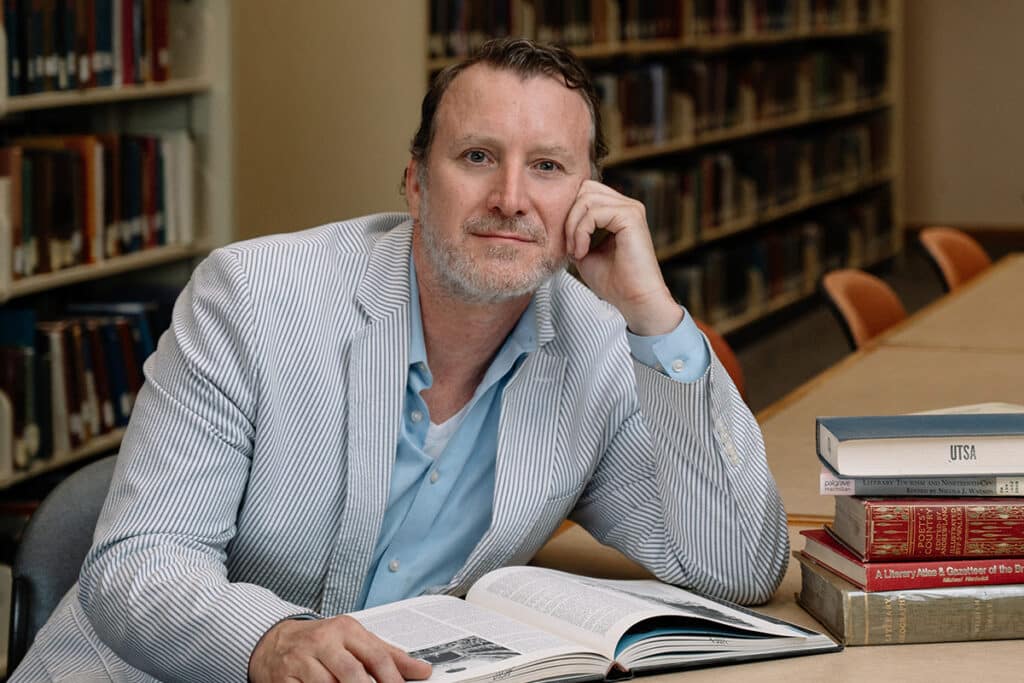By bloodline, upbringing and inclination, Whitney Solcher was born for business. President of San Antonio Capital Management, LLC, an investment firm founded in 2009, she’s the great-granddaughter of the late Walter McAllister, former San Antonio mayor and founder in 1914 of the San Antonio Savings Association (SASA), a savings-and-loan association of which her father, Gerry Solcher, was president.
At 32, she’s president of San Antonio Capital Management, LLC, an investment firm she and four partners founded in 2009. Growing up, Solcher loved visiting her father’s office. “The whole atmosphere attracted me,” she remembers — “the leather sofas, the quiet.” Her father once let her hold $20,000 in cash from the vault, and that might have been the moment that sparked her interest in handling money.
As a child, she operated “multiple lemonade stands,” and at age 12, she convinced her father to let her use his woodworking tools to craft jumps and other props for the Breyer model horses popular among girls on the horse-show circuit. She sold her work at competitions she entered, then used her savings to open a small account with a family friend and stockbroker. “At 12, I was reading the Wall Street Journal to check my stocks,” she says. “At lunchtime, I’d use a pay phone in school to call my broker and buy 500 shares of AOL.” Meanwhile, at horse shows, Solcher rode hunters and jumpers, competing at the state level, an experience she believes earned her bona-fides as a serious competitor. At an interview for her first job at Goldman Sachs, an international investment-banking firm, “I was asked if I could be competitive without having played a team sport. I said I had played on a team of two, managing a 2,000-pound animal who didn’t speak my language.” After 12 years as a student at Saint Mary’s Hall — the last four on a Campbell Academic Scholarship, a prestigious merit award — Solcher says, “I’d had enough of liberal arts.” For college, she was “chomping at the bit” to begin her professional education in business. Though she was accepted at the University of Virginia and considered the school for its varsity equestrian program she chose the University of Texas at Austin for its undergraduate honors business program. During her college years, Solcher explored career options through an internship at Merrill Lynch in Austin and an SBC summer management program in corporate finance.
The experience taught her that she prefers working with individuals and families, an insight that launched her on a career as an investment adviser. At Goldman, she trained in New York and was sent to Houston, where she began as a financial analyst. Besides learning her trade in the firm’s sink-or-swim method, Solcher also began studying to become a chartered financial analyst (CFA), the “gold standard” credential for investment professionals, comparable to the process of becoming a certified public accountant (CPA) “but even more stringent.” Candidates for the globally recognized designation have to pass three exams to qualify. Only five percent pass all three on the first try, says Solcher, who was one of them, earning her CFA credential in three years. “In my first two years at Goldman, I had no life,” she says. “I’d work all day and come home to study at night.” The effort paid off: Solcher was twice promoted during her eight years with Goldman, eventually becoming the firm’s youngest vice president at the time. By 2008, however, she was ready to leave the company. During her last year, Solcher became increasingly uncomfortable as news of her employer’s investments in subprime mortgages began to come out. Even though she worked in the investment management division, not implicated in mishandling of toxic assets, she says, “I kept getting calls from clients, constantly having to defend myself against the headlines.” Solcher returned that year to San Antonio, a move she had been planning for years. “When I graduated (from college), there weren’t a lot of opportunities here,” she says. “I needed to earn my way back, working somewhere else to build up the skills and experience you need to contribute on a significant level.” At first, she worked as a consultant to a few family offices here, but soon was approached by a family friend, Steve Lee, who invited her to become part of an investment group he was forming with Bruce Bugg, Jim Gorman and Dick Schlosberg, all seasoned business executives.
“I really liked their investment strategy, because it was the opposite of what Wall Street was doing,” says Solcher. As the founding partners planned their business model, it was a simplified approach to investing, fee- and tax-efficient and stressing diversification, liquidity and transparency, and the partners would invest along with their clients. The idea held a solid appeal to Solcher. “I want to build something great,” she says. “I also wanted to work with a smaller team, more like a family.” And, she says, “I’ve always been entrepreneurial. When I came back, I didn’t want to go to work for Smith Barney or UBS; I wanted to do something I could put my stamp on.” While she and her partners were crafting the business model and planning a launch, Solcher also was planning her wedding to Joe Miller, a fellow entrepreneur she had met by chance a few years earlier when he came to San Antonio to visit his brother, who was serving in the military here. Now owner of the San Antonio Technology Center, Miller had an intriguingly different background from Solcher’s, yet he had the same competitive edge. Brought up in rural Alabama, he used a tennis scholarship to take him into a wider world; after a stint on a pro tour in Australia, he went into business for himself, primarily in real estate and biotech. The couple married in April 2009, about the time Solcher’s new firm registered with the Securities Exchange Commission. Though both Solcher and Miller put in long hours at work, they enjoy talking shop with each other. “We talk about business strategies, not clients,” she says. As for work-life balance, she says, “We’re working on it.” The couple plays tennis — “He babies me,” she says, smiling — she loves to cook, and both look forward to more travel together.
Meanwhile, Solcher loves her job. “I take a lot more pride in my work now,” she says. As an investment adviser, “Half my job is finance, the other half is psychology.” With new clients, she spends time figuring out what their financial circumstances and aspirations are. Given the confidentiality of her role, she says, “People open up to you; the amount of trust that they put into your hands is awe-inspiring.” Female clients, she says, “are more likely to talk about their risk tolerance, their emotional as well as financial needs.” Whatever the client’s history or requirements, she says, “There’s never a dull day (because) you’re helping people.” San Antonio investors, says Solcher, “tend to be conservative.” Some of the more common mistakes she has observed include “paralysis by analysis” — leaving money in investments that are no longer good through indecision — buying high and selling low and hanging on to portfolios exclusively based on the depreciating U.S. dollar. Looking at today’s global investment market, Solcher hopes to attend the 2013 CFA Conference in Singapore, then go on to explore emerging opportunities for U.S. investors by traveling in Asia and Australia.
However far she travels, though, San Antonio is home. Solcher is active in the community, sitting on the boards of the Witte Museum, the San Antonio River Foundation and Saint Mary’s Hall, as well as the Center for Innovation and Technology Entrepreneurship at the University of Texas at San Antonio. Having earned her own way back to her roots, she says, “I support this city and any effort that will bring high-quality jobs to San Antonio. The quality of life here is so different from Houston or Dallas.” For Solcher, there really is no place like home.




